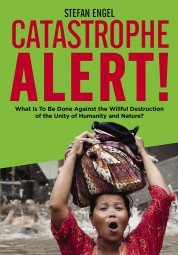March 29, 2003: Growing Smear Campaign and Suppression against the Peace Movement
1. While the US strategy "shock and awe" at
the beginning of the war on Iraq has failed miserably, worldwide
and every day demonstrations, strikes, blockades and rallies against the
war are taking place. To which extent this peace struggle affects the
concrete conduct of war, and even restricts in part the possibilities of
the aggressors, has become evident by the fact that the state organs are
adopting a more and more sharper tone and taking action in a more and more
brutal way against the peace movement.
In Italy the state of emergency has already been declared, giving the state oppression and manipulation of the public an extensive legal basis. The US administration has especially blamed the peace movement for restricting the rights of American citizens and spending millions of dollars for the overtime work of the police due to the demonstrations. This smear campaign is immediately connected with harsh reprisals against the peace movement.
In San Francisco 2,200 and in New York more than 200 war opponents were arrested by the police that took action against the demonstrators with helicopters and mounted police. Arrests were made also among others in Sidney, Seoul, Chile. In Madrid 110 persons were injured because the police used rubber bullets. In Colombia there was massive police violence against the peace demonstration. In Great Britain clashes took place between the police and young people. In Yemen the police shot into the crowd and killed four demonstrators. In Sudan as well people were killed. In Turkey the police used tear gas. In Egypt there were street battles lasting for days against the state terror during which four people died. Due to the open reprisal the struggle for world peace is tending to become a worldwide struggle against the state apparatus of force and oppression. This deepens the latent political crisis and pushes ahead the revolutionary ferment in Latin America.
2. In Germany the extension of state surveillance is being accelerated under the pretext of protection against "criminal and terrorist attacks". At the "information assembly point Iraq" joint reports of the Office for the Protection of the Constitution, the Federal Intelligence Service and the Secret Service of the Armed Forces are drawn up around the clock. On 12 March the Federal Constitutional Court authorized far-reaching intrusions on the fundamental rights of the secrecy of telecommunication and freedom of the press by the surveillance of mobile phones of journalists. Even now 50 per cent of all phone taps in Europe are taking place in Germany. All the daily 216 millions of phone calls are under selective surveillance. The state surveillance system is more perfect and comprehensive than at the time of Hitler's dictatorship!
3. In its actions against demonstrators the state apparatus is being systematically trained for operations against mass movements. Since 18 March an additional number of 2,500 riot policemen have been placed on alert in North Rhine-Westphalia against "spontaneous actions and mass demonstrations." In Hamburg an example should be set against the movement of the students which is growing despite of the threat of fines. Against a demonstration attended by 20,000 students the police used batons and water cannons when the demonstration marched to the US consulate. 160 young people were detained or taken into custody. The chairman of the Federal Union of the Employer's Federation, Hundt, has given the general instruction that strikes in the enterprises were illegal as these are "political actions". At General Motors the Europe-Center for all plants has placed a written ban on antiwar activities during working hours. Siemens company threatened with letters of caution.
4. Many employees disregarded the threats and written warnings. In most cases the factory management, however, refrained from taking disciplinary measures in order to avoid a further intensification of the conflict. Nevertheless, the development and broadening of the active resistance requires also the struggle for fundamental rights like the full legal right to strike in all matters or the right of assembly and demonstration on an antifascist basis. The demonstrations of the students are rather increasing instead of decreasing in spite of reprisals. The peace movement does not allow to be kept on tight reins! The struggle for peace must be combined with the struggle for the extension of democratic rights and liberties.
Document Actions

